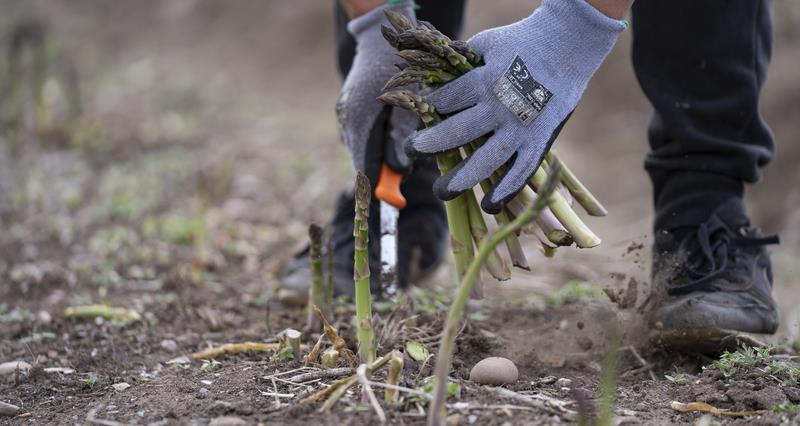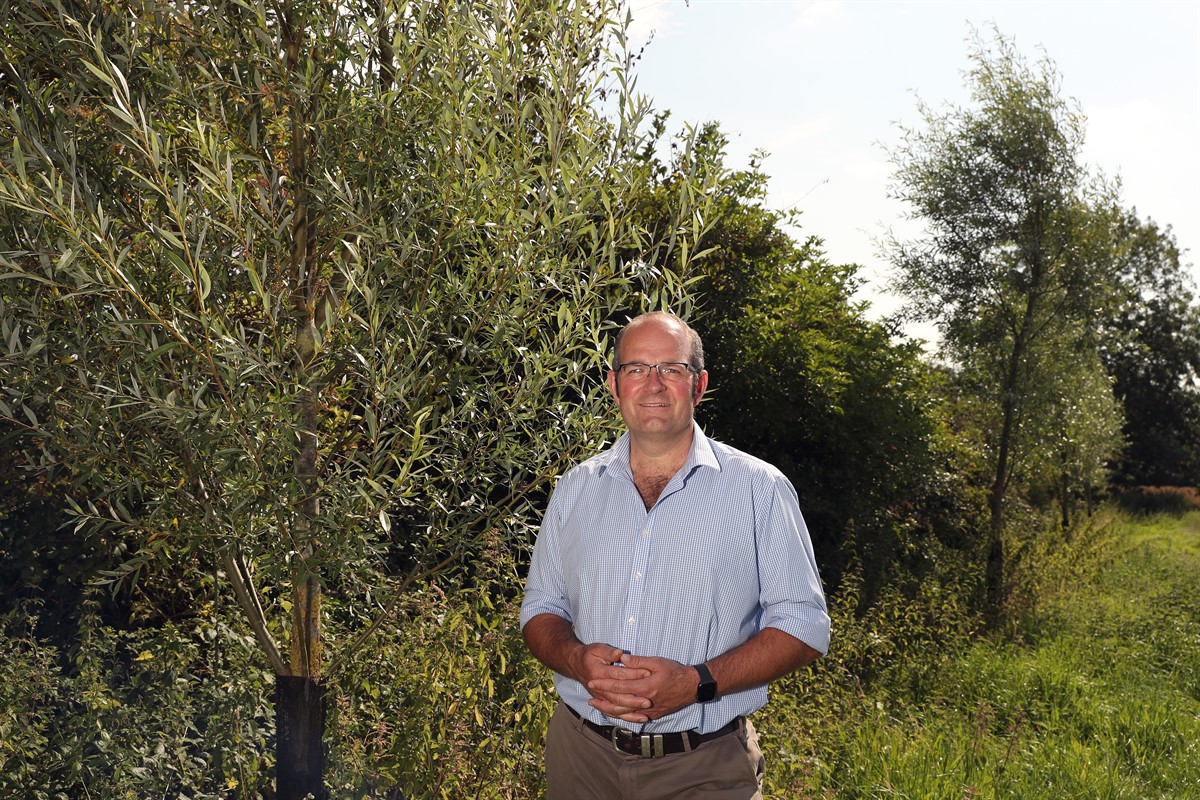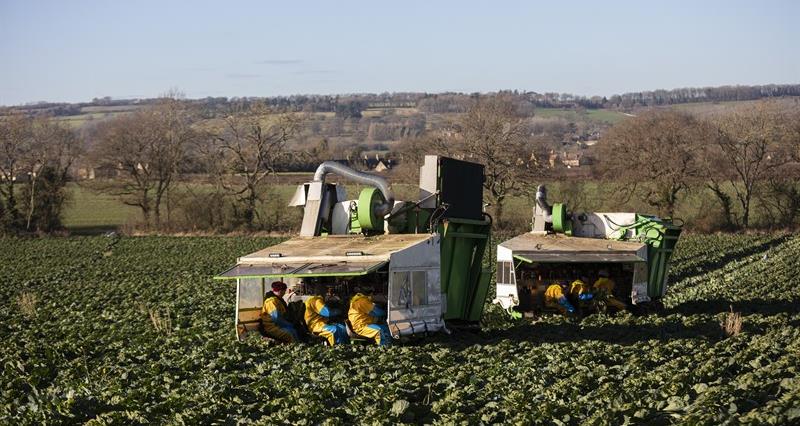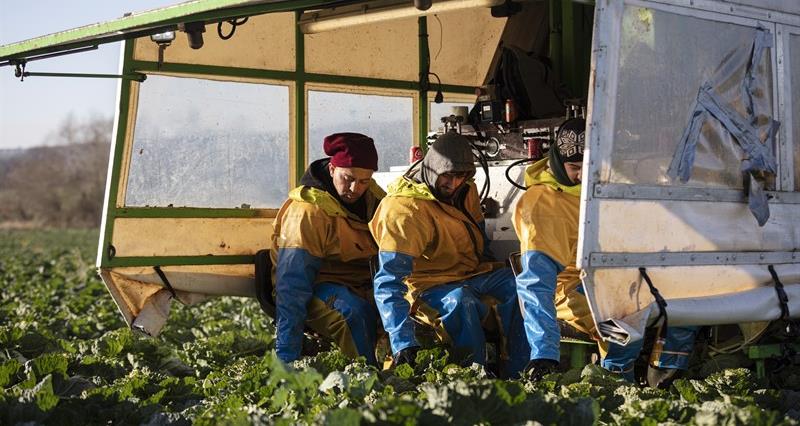In August 2022 the government announced that an Independent Review panel will look at labour shortages across agriculture, horticulture and the wider food supply chain.
The panel considered the challenges farming businesses face to recruit and retain the labour they need now and in the future. The recommendations have now been published and include NFU asks to remove the cap on the total number of seasonal agricultural worker visas and extend the length of those visas to nine months. The report also suggests businesses should have the ability to directly sponsor workers and calls for greater automation with improved access to funding.
Labour shortages threatening food production
“Ensuring we have enough workers, both permanent and seasonal, is essential to maintaining domestic food security and providing British consumers with high quality, nutritious, climate-friendly food,” said NFU Deputy President Tom Bradshaw.
“Our own recent survey looking at worker shortages across the agriculture industry shows that 41% of respondents reduced the amount of food they produced due to being unable to recruit the essential workforce needed.”
In May 2023, the NFU responded to the MAC’s (Migratory Advisory Committee) consultation of the SOL (Shortage Occupation List). We gathered responses from 506 members as part of a survey which looked into eight different roles which have been a challenge to fill within farming and horticulture.
Despite respondents using a variety of platforms and techniques to advertise for new employees, such as recruitment agencies, social media, word of mouth, and taking varying measures to retain and recruit, 71% of respondents said they have had difficulty in retaining workers in the past two years.
“The horticulture and poultry sectors have been severely impacted by worker shortages in recent years, and we welcome the panel’s recommendation to secure the Seasonal Workers Scheme beyond 2024.”
NFU Deputy President Tom Bradshaw
Key stats at glance:
- 70% of respondents said they had difficulty retaining workers in the past two years.
- In the poultry sector, 75% of respondents said they found it very difficult to recruit poultry shed cleaners and 60% said they found it very difficult to recruit hatchery operatives.
- In the horticulture sector, 56% of respondents said they found it very difficult to recruit supervisors with language skills.
The top three reasons for this difficulty in retainment was as follows:
- 57% of employers said their employees moved to a different occupation or different industry.
- 57% of employers said their employees were EU workers with settled status leaving and not returning.
- 53% of employers said that labour shortages increased the workload for existing workers, causing them to leave.
Seasonal worker scheme needs to be extended
“The horticulture and poultry sectors have been severely impacted by worker shortages in recent years, and we welcome the panel’s recommendation to secure the Seasonal Workers Scheme beyond 2024,” said Tom.
“We have been calling for a long-term 5-year rolling scheme to guarantee businesses have the certainty they need to continue producing food.”
Just under a quarter of respondents said that they were increasing automation on farm to minimise the impact of labour shortages on their business, but automation still has a long way to go before it can replace labour completely.
One grower who participated in the survey explained how despite having looked at automation to minimise the impact of the shortages “the technology is not there, so we are still heavily reliant on human labour, especially in the field”.
Focus on training and upskilling
Responding to the report’s findings, Defra has announced that TIAH (The Institute for Agriculture and Horticulture) will be officially launched later in the year and is currently running a test version of its online skills and learning service as part of its pilot phase. Learn more about how to access this at: Free access to farmer and grower skills and learning service
Tom commented that TIAH will have a “key role to play” in the training and upskilling of domestic workers, with 77% of respondents saying that the difficulty in recruiting workers was down to a lack of applicants.
“We must now work together to solve the labour challenges impacting the industry, which is a brilliant one to work in and has many opportunities across all levels,” said Tom.
Farming Minister Mark Spencer has responded to the review’s recommendations, highlighting that 45,000 seasonal worker visas have been made available to the horticulture sector for 2024, with the potential for 10,000 further places if needed.
“We will look closely at the findings of the review and will set out our response in Autumn, as the Prime Minister confirmed at the recent Farm to Fork Summit,” the Minister concluded.
The NFU has submitted its response to the MAC and is expecting an updated SOL later in the year. To read about the results of our consultation in more detail, visit: Review of the shortage occupation list – NFU response.




